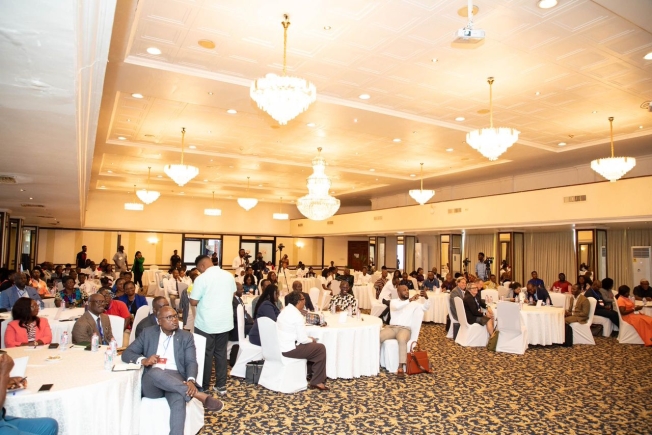The Solid Waste Association of Ghana (SWAGH), the country’s chapter of the International Solid Waste Association (ISWA), has hosted the maiden ISWA Africa Conference to explore solutions to waste management challenges across the continent.
Speaking at the event, Ernest Kusi, President of SWAGH, stressed the importance of developing local solutions to Africa’s sanitation problems. “We need African solutions to tackle Africa’s waste management challenges,” he said, adding that the conference offered an opportunity for stakeholders to discuss financing issues, innovations, and public-private partnerships.
In a statement delivered on his behalf, the Executive Chairman of the Jospong Group, Joseph Siaw Agyepong, emphasised the need for sustainable funding models to underpin waste management efforts. “We need to come up with innovative ways of ensuring that sustainable funding is made available for waste treatment across Africa,” he said.
“Global practices, such as those in the UK, where waste management is funded through council tax and property tax, can serve as a model for us,” he added.
Dr Alexander Kumi Larbi Jnr, Director of International Business, who read the statement on behalf of Agyepong, further highlighted the role of multiple stakeholders in the process. “Waste management is not an expense, it is an investment in public health, in economic growth, and in the betterment of our people,” he said.
President of ISWA’s African Regional Chapter, Deji Fawole, also urged stakeholders to focus on context-specific interventions. “Let’s talk, let’s collaborate, let’s find solutions, and let’s discuss the problems and solutions,” he noted.
The conference, themed “Charting Africa’s Path to a Wasteless Future: Integrated Strategies for Sustainable Waste Management,” brought together experts from across Africa and beyond to share knowledge, network, and build capacity.
Speakers included representatives from Kenya, Nigeria, South Africa, Germany, and Belgium, underlining the global interest in addressing Africa’s waste management challenges. Over the three-day event, discussions centred on financing, waste generation, and infrastructure development, with an emphasis on innovative and sustainable approaches.
By hosting the conference, SWAGH and ISWA Africa demonstrated their commitment to promoting sustainable waste management practices in Ghana and across the continent. As Kusi observed: “Where there is a will, there is a way. When government is committed to solving the problem, we can solve it.”

